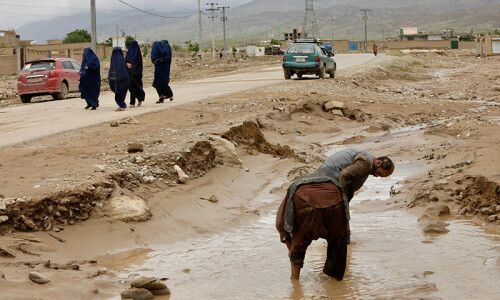SHANGHAI: China and Spain signed business deals worth about 3.2 billion euros ($4bn) on Thursday during a visit by Spanish Prime Minister Mariano Rajoy to the Asian powerhouse to drum up support for his country’s economy.
At a ceremony in Beijing’s Great Hall of the People, Chinese and Spanish companies signed 14 deals in industries ranging from telecommunications to nuclear power to finance.
Rajoy, who will meet Chinese President Xi Jinping on Friday, is the latest European leader to visit China to lure investment from the world’s second-biggest economy.
He was welcomed to the capital by Premier Li Keqiang late on Thursday following a morning gathering of Chinese and Spanish business executives in Shanghai, where Rajoy called for Chinese investment in Spain, saying the Spanish economy was back on track after its problems during the euro zone debt crisis.
“Few countries offer such a good investment opportunity as Spain with its open and competitive market,” Rajoy said in Spanish, adding that the food and consumer industries were areas where the companies of both countries could increase cooperation.
Companies that took part in the meetings included Spain’s largest bank, Banco Santander, Inditex, the owner of global fashion chain Zara, and Chinese e-commerce juggernaut Alibaba Group Holding, which listed on the New York stock exchange last week.
There was no word late on Thursday of a tie-up between Inditex and Alibaba despite reports in Spain that Rajoy was hoping to push through a partnership between the world’s largest clothing retailer and the Chinese e-commerce company that now has a market capitalisation of more than $220bn.
The 14 agreements included deals between China’s Huawei Technologies, the world’s largest telecommunications equipment maker, and Spanish telecom giant Telefonica SA and a 150 megawatt contract in Hebei Province for wind turbine maker Gamesa Corporacion Tecnologica SA.
Spain is one of few economic bright spots in the euro zone this year. It grew at its fastest pace in six years in the second quarter, accelerating a recovery from an on-off recession that began in 2008 after a property bubble burst.
Published in Dawn, September 26th, 2014













































Dear visitor, the comments section is undergoing an overhaul and will return soon.